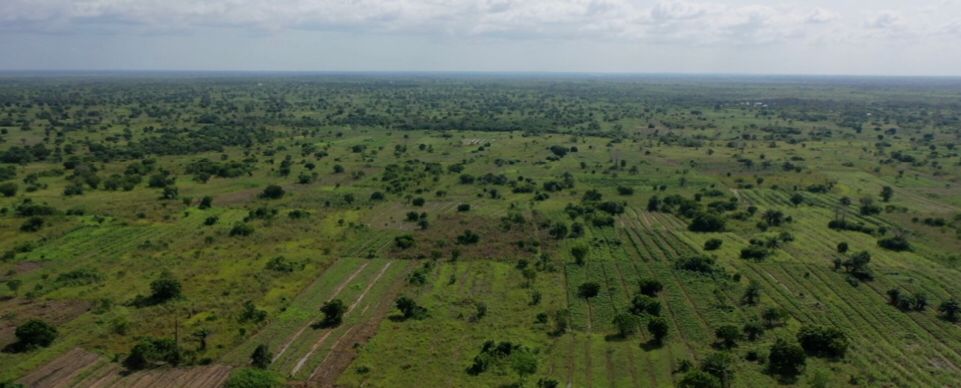Lotus Ecoculture, through its subsidiary, Mepe Farms Limited, an agricultural development company, has launched its services seeking to offset $35 billion annual food imports to the African continent.
The company has been trading with smallholder farmer aggregation in the West African markets for over six years.
It utilizes innovative technologies to deliver the highest yields and quality crops in a sustainable zero-waste production cycle, with a specialty in organic grains and greenhouse vegetables.
A communique issued by the company indicated that Mepe Farms has partnered with several businesses and organizations that aim to alleviate poverty, improve food security, and foster economic growth including the Ministry of Food & Agriculture (Ghana) and TROTRO Tractor.
The company has acquired over 3,300 hectares of farmland in the Volta region, hoping to increase farming yields by up to 30% “whilst maintaining a zero-waste, zero-chemical operation.”

It also aims to tackle rising food costs using innovative agronomic and agritech solutions, a fully-mechanised technological process, and zero-chemical input operation to boost growth in Ghana’s agricultural sector.
“All inputs are OMRI (Organic Materials Review Institute) certified, bringing Ghana best-in-class organic inputs, available to farmers in the region at a discounted price.”
Activities of the companies would address the concerns of lack of raw materials in producing animal feed, which has been identified as a major setback in the sector, leading to a frequent shortage of feed.
An estimate of 50 jobs would be created for an all-female agronomic team, “to remedy the fact that women already make up a significant percentage of the agriculture value chain, but earn a fraction of the income.”
Export and off-taker agreements
Mepe Farms have secured massive export agreements to supply various companies in Europe and Asia, and as well as provide raw materials to some factories in Ghana.
The agreement includes the exportation of 4,500 metric tonnes of SoyBeans to European and Asian markets.
The supply of 2,250 metric tons of Soybeans and 3,750 metric tons of maize to support animal feed
production companies operating locally and 3,000 metric tons of organic tomatoes to two processing companies operating in the Bono Region.
Interestingly, all organic waste from cultivation operations will be used as raw materials and converted into Bio-Fertiliser and energy under the company's Assisted Fermentation Technology and Portable Biogas module.
“The Bio-fertiliser is healthier, safer, and more environmentally friendly than its chemical counterparts. This enzyme-induced bio-fertilizer will also be made available for sale to farmers in the region at a discounted price.”
Latest Stories
-
Ghana’s Next Sports Minister: The Debate Begins
11 minutes -
Election 2024: NPP advised to be mindful of the reasons being ascribed to their election lost
22 minutes -
GNFS urges Ghanaians to prevent fires during yuletide
23 minutes -
Report tobacco users who smoke publicly – FDA advises
51 minutes -
Abdallah Ali-Nakyea elevated to Associate Professor at UG School of Law
1 hour -
Kick2build commissions 5 libraries in Klo Agogo, donates school supplies
1 hour -
Slim and Fit Ghana donates to kids at Motherly Love Orphanage in Kwabenya
2 hours -
We’ll be reorganising ourselves for the battles of tomorrow – NPP
2 hours -
Ghanaian teacher Morkporkpor Fiador’s GWR Read-A-Thon attempt postponed
2 hours -
Revocation of licences of UT, Capital banks were strict requirements from IMF – Dr. Addison
2 hours -
MP Cynthia Morrison among 280 members expelled by Agona West NPP
2 hours -
NPP to set up committee to investigate 2024 election defeat – Stephen Ntim
2 hours -
New Juaben North NDC executives intercept 24k bags of fertiliser at Koforidua
3 hours -
Luigi Mangione pleads not guilty to murdering healthcare CEO
3 hours -
GhLA opens applications for 2nd Edition of Youth Advocacy Challenge
3 hours

